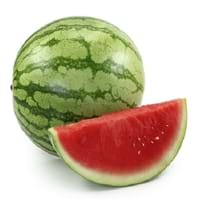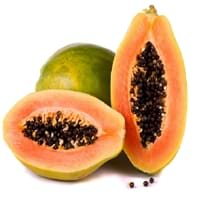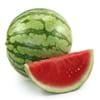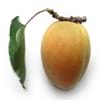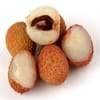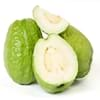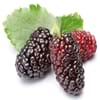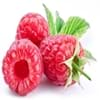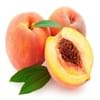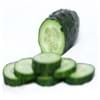Health Benefits
Anti-aging benefits, Anti-inflammatory properties, Asthma treatment, Body hydration, Cancer prevention, Digestive aid, Skin cleansing, Skin rejuvenation
Arthritis prevention, Asthma treatment, Cancer prevention, Heart care, Prevents macular degeneration, Prevents rheumatoid
General Benefits
Anti-inflammatory properties, Body hydration, Controls blood pressure, Digestive aid, Maintains healthy cholesterol level
Anti-inflammatory properties, Boosts immune system, Digestive aid, Healing of wounds, Maintains healthy cholesterol level, Strengthens bones
Skin Benefits
Anti-aging benefits, Brightens and lightens complexion, Hydrates skin
Anti-aging benefits, Hydrates skin, Skin revitalization, Treatment of acne, Treatment of dark spots
Hair Benefits
Promotes longer and healthier hair, Regulates hair growth
Good conditioner, Promotes longer and healthier hair, Softening mask, Treatment of dandruff
Allergy Symptoms
Breathing difficulty, Decrease in blood pressure, Dizziness, Eczema, Hives, Runny nose, Swelling of mouth, tongue or lips, Watery eyes
Abdominal pains, Carotenemia on excessive consumtion, Latex Allergy
Side Effects
Allergic reaction, Bloating, Diarrhoea, Indigestion, Intestinal gas, Nausea, Vomiting
Allergic reaction, Skin problems, Possibly unsafe during pregnancy
Best Time to Eat
As a snack in the late afternoon, Don't consume at night and before bed, Eat the fresh ones, avoid mixing with any other foods, don't eat after meal., Strictly avoid empty stomach
As a snack in the late afternoon, Don't consume at night and before bed, Don't eat after meal
Vitamin B5 (Pantothenic Acid)
Vitamin C (Ascorbic Acid)
Vitamin K (Phyllochinone)
Phytosterol
Not Available
Calories in Fresh Fruit with Peel
Not Available
Not Available
Calories in Fresh Fruit without Peel
Calories in Frozen Form
Not Available
Calories in Canned Form
Not Available
Type
Berry, Melon
Melon, Tree fruit
Season
Summer
All seasons
Varieties
Sugar Baby, Sangria, Golden Midget, Starlight, Jubilee, Starbrite, Extazy, Stars 'n' Stripes, Mickylee, Yellow Baby, Yellow Doll, Little Baby Flower, Sweet Favorite and Cream of Saskatchewan
Coorg Honey Dew, Pusa Dwarf, Pusa Giant, Pusa Majesty, Pusa Delicious, Pusa Dwarf, Solo, Ranchi, Taiwan-785 and Taiwan-786
Color
Canary yellow, Coral red, Orange, Salmon yellow, Scarlet red, White
Orange, Yellow
Taste
Sweet
Luscious, Sweet
Origin
Southern Africa
Mexico, Central America
Soil Type
Sandy, Well-drained
Rocky, Sandy, Well-drained
Climatic Conditions
Dry, Hot
Warm, Without frosts
Facts about
- Watermelon contain 91% of water.
- In Japan & Chine, watermelon is a popular gift to bring a host.
- Entire watermelon is edible, even the rinds & seeds.
- There are more than 1200 varieties grown in the world.
- Papaya seeds show contraceptive effects in male monkeys.
- Their seeds are used as a replacement for black pepper in some nations due to peppery taste.
- Papaya is known by funny names like paw paw or papaw and the mamao.
Other Countries
Algeria, Brazil, Egypt, Iran, Kazakhstan, Mexico, Spain, Turkey, United States of America
Brazil, Indonesia, Mexico, Nigeria
Top Importer
Germany
United States of America
Top Exporter
China
Mexico
Botanical Name
Citrullus Lanatus
Carica papaya
Synonym
Citrullus vulgaris
Not Available
Subkingdom
Tracheobionta
Tracheobionta
Division
Magnoliophyta
Magnoliophyta
Class
Magnoliopsida
Magnoliopsida
Subclass
Dillenhidae
Dillenhidae
Order
Cucurbitales
Brassicales
Family
Cucurbitaceae
Caricaceae
Species
C. lanatus
C. papaya
Generic Group
Gourd
Papaya
Difference Between Watermelon and Papaya
We might think that Watermelon and Papaya are similar with respect to nutritional value and health benefits. But the nutrient content of both fruits is different. Watermelon and Papaya Facts such as their taste, shape, color, and size are also distinct. The difference between Watermelon and Papaya is explained here.
The amount of calories in 100 gm of fresh Watermelon and Papaya with peel is Not Available and Not Available and the amount of calories without peel is 30.00 kcal and 43.00 kcal respectively. Thus, Watermelon and Papaya belong to Low Calorie Fruits and Low Calorie Fruits category.These fruits might or might not differ with respect to their scientific classification. The order of Watermelon and Papaya is Cucurbitales and Brassicales respectively. Watermelon belongs to Cucurbitaceae family and Papaya belongs to Caricaceae family. Watermelon belongs to Citrullus genus of C. lanatus species and Papaya belongs to Carica genus of C. papaya species. Beings plants, both fruits belong to Plantae Kingdom.
